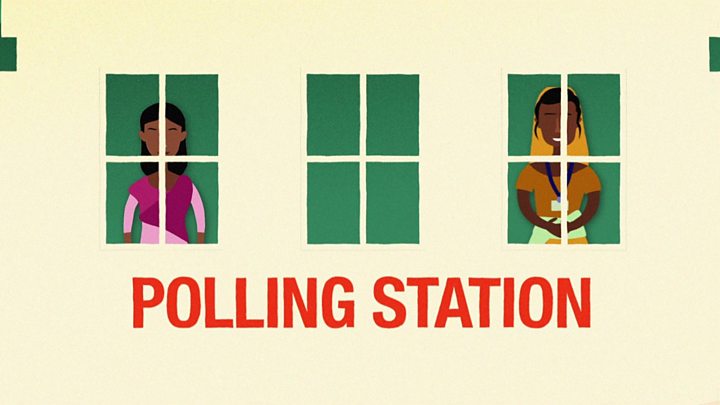SYDNEY, Australia — In a gold-curtained meeting room in Sydney, the Chinese consul general appealed to a closed-door gathering of about 100 people, all of them Australian residents and citizens of Chinese ancestry.
He called on the group to help shape public opinion during a coming visit of China’s prime minister, Li Keqiang, in part by reporting critics to the consulate. Rallies in support of China should be coordinated, he suggested, and large banners should be unfurled to block images of protests against Beijing.
“We are not troops, but this task is a bit like the nature of troops,” said the diplomat, Gu Xiaojie, according to a recording of the session in the consulate obtained by The New York Times and verified by a person who was in the room. “This is a war,” he added, “with lots of battles.”
The previously unreported meeting in March 2017 is an example of how the Chinese government directly — and often secretly — engages in political activity in Australia, making the nation a laboratory for testing how far it can go to steer debate and influence policy inside a democratic trade partner.
It is a calculated campaign unlike any other Australia has faced — taking advantage of the nation’s openness, growing ethnic Chinese population and economic ties to China — and it has provoked an uncomfortable debate about how Australia should respond.
Many countries face the same challenge from China, an authoritarian power pushing its agenda inside and beyond its borders.
In Asia, China has been accused of funneling funds to the campaigns of preferred presidential candidates in Malaysia and Sri Lanka. In the United States, there is concern about Beijing’s efforts to stifle dissent on college campuses. And in Europe, Chinese companies and organizations tied to the ruling Communist Party have held events for political leaders and donated millions of dollars to universities.
China once sought to spread Marxist revolution around the world, but its goal now is more subtle — winning support for a trade and foreign policy agenda intended to boost its geopolitical standing and maintain its monopoly on power at home.
The contours of its playbook are especially visible in Australia, where trade with China has fueled the world’s longest economic boom. Australian intelligence agencies have warned of Beijing’s efforts, and the issue is likely to be contentious for Australia’s conservative prime minister, Scott Morrison, who won a surprise victory in elections Saturday.

Representatives of the Chinese government routinely lobby Australian politicians behind closed doors without disclosing their activities, often by threatening economic punishment and persuading Australian business and academic leaders to deliver their message.
The Chinese government and its supporters have also sought to suppress criticism and elevate its views in the Australian news media, by suing journalists and publishers for defamation, financing research institutes and using advertisers to put pressure on Chinese-language outlets.
Beijing has even promoted political candidates in Australia with these outlets as well as via the United Front Work Department, the party’s arm for dealing with overseas Chinese, and — according to some assessments — with campaign contributions made by proxies.
Last year, after a scandal involving donors with ties to Beijing forced a senator to resign, Parliament approved an overhaul of espionage laws making it illegal to influence Australian politics for a foreign government.
Australia’s new government — led by Mr. Morrison, who has been vague about his plans for foreign policy — must now decide what to do next at a time when the public is divided: Many Australians fear China but also favor good relations to maintain economic growth and regional stability.
“There is a lot to unravel with the China story here,” said Mark Harrison, a China scholar at the University of Tasmania.
The Communist Party, he said, is essentially trying to enforce the same bargain with Australia that it has with the Chinese people: a promise of prosperity in exchange for obedience and censorship.
Weaponized Economics
China’s economic bonds with Australia can be traced to the 19th century, when a gold rush drew Chinese immigrants to the continent. Now, China is an engine of economic growth for the country and its largest trading partner by far, accounting for 24 percent of Australian imports and exports.
With that reliance comes an implied threat: China can take its money elsewhere.
The problem, current and former Australian officials say, is the Chinese government rarely discloses its lobbying activities. Australian businesses linked to China often lean on politicians without public scrutiny, leading security agencies to warn about Beijing manipulating politics.
“In no country is there such a profound rift between business community and security,” said Linda Jakobson, founding director of China Matters, a nonprofit policy group based in Sydney.
Critics say China has exploited that rift — and even tried to use its economic leverage to punish Australia for adopting the new law requiring those working on behalf of a “foreign principal” to register their activities.
In June, Australian winemakers said they were facing problems with their exports to China, and a major deal to expand chilled beef exports into China — negotiated during Mr. Li’s visit — stalled. In January and February, China also delayed coal imports from Australia at some ports.
Beijing denied any effort to punish Australia, and Australian politicians have brushed off these disputes. But it hardly the first time Beijing blurred the lines between business and politics.
In 2009, the Australian government rejected a bid by a Chinese state-owned firm to purchase 18 percent of Rio Tinto, the Anglo-Australian mining giant, after officials argued privately that the sale would give China too much power to set prices.
Beijing’s response was an early version of what has since become common in the relationship: a campaign to pressure the Australian government via China’s business partners.
Chinese officials and investors “put the weights on the relevant Australian executives,” Kevin Rudd, the prime minister at the time, recalled in an interview. “The whole idea at that stage was to maximize business lobby pressure on the government.”
Silencing Dissent
In May 2018, two children in Rockhampton, a rural capital of beef production, painted tiny Taiwanese flags on a statue of a bull during an event celebrating the town’s diversity. There were flags from many countries, but the local government painted over those from Taiwan to avoid offending Beijing, which says the self-governing island is part of China.
“What they want are pre-emptive concessions to Chinese interests,” said Peter Varghese, a former head of Australia’s Department of Foreign Affairs and Trade.
Analysts say Beijing tries both to suppress speech in Australia that undercuts its priorities — such as the diplomatic isolation of Taiwan — and to promote its own agenda.
Critics say one prominent example is the Australia-China Relations Institute, a research organization in Sydney led until recently by Bob Carr, a former foreign minister and outspoken defender of China’s positions. The institute was established with a gift from Huang Xiangmo, a Chinese real-estate developer who had donated generously to both of Australia’s main political parties.
Australia recently rejected his citizenship application and revoked his residency, despite his denials of having acted on behalf of the Communist Party.
China has also had success shaping news coverage in Australia, especially in Chinese-language outlets.
Maree Ma, general manager of the company that owns Vision China Times, a newspaper in Sydney and Melbourne, said Chinese officials successfully pressured businesses in 2015 and 2016 to pull their ads because of its critical coverage.
And before Saturday’s election, on WeChat — the Chinese social media platform, which is also popular in Australia — accounts affiliated with the Chinese Communist Party mocked the conservative government, disparaging Australia as “a country whose head has been kicked hard by kangaroos.”
English-language outlets are not immune to the pressure. In 2017, one of Australia’s largest independent publishers delayed publication of a book examining Chinese influence in Australian institutions.
Because Australian law favors plaintiffs in defamation suits, some say such cases — including a large payout in February to Chau Chak Wing, a Chinese-born property tycoon and political donor — have had a chilling effect on reporting and public protesting that might anger Beijing or its allies.
At the Chinese consulate in 2017, organizers showed photos of pro-China activists in Australia roughing up protesters from the Falun Gong spiritual movement, which is banned in China.
The audience applauded.
Running for Office
China’s playbook prioritizes one particular group: Australia’s growing ethnic Chinese population, a diverse group of more than one million people, about half of whom are immigrants from mainland China.
At times, the Chinese government treats Australian citizens of Chinese ancestry as if they’re still subject to its rule. Critics of Beijing are often pressured. In January, Yang Hengjun, an Australian writer and former Chinese official, was arrested on dubious charges of espionage while visiting China.
More often, Beijing tries to woo people like Yongbei Tang.
Ms. Tang moved to Australia 23 years ago with her husband, an electrical engineer, settling in Hobart, the capital of Tasmania, where she started editing a newspaper called Chinese News Tasmania. Last year, she ran for the City Council.
“All the people in the community know me,” she said, when asked why. “I’m a media person. Influential.”
Ms. Tang had also helped start a local chapter of the Australian Council for the Promotion of Peaceful Reunification of China, which promulgates Beijing’s position that Taiwan is part of China. The group was established by Mr. Huang, the donor whose residency was revoked, and Australian intelligence officials say it is an arm of the party’s overseas influence efforts.
That connection and others made Ms. Tang, an Australian citizen, a subject of intense debate during the campaign, which she lost. Several local Chinese leaders published an open letter condemning her “hiding of titles of many organizations including her association with the Chinese Government.”
Cassy O’Connor, the leader of the local Greens Party, accused her of being part of an attempt by Beijing to dominate the Tasmanian tourism and property investment. “The Chinese government actually picks off smaller states like Tasmania, with smaller economies,” she said.
Ms. Tang denied any ties to the party. “The only wrongdoing I did was to put my hand up, wishing to add a different voice to the Hobart City Council,” she said.
What Ms. Tang actually reveals, analysts say, is the party’s ability to recruit sympathizers around the world, many of whom gravitate to Beijing’s orbit less because of ideology than the potential for wealth and influence. Even after her loss, she received favorable coverage on state television in China.
For many, Australian politics has become an increasingly valuable option — one of many ways to potentially benefit from Chinese power and prosperity.
“We are no longer the sick man of East Asia,” said one business leader at the consulate meeting in 2017. “We Chinese stand tall.”
https://www.nytimes.com/2019/05/20/world/australia/australia-china.html
2019-05-20 07:00:12Z
52780299181489



